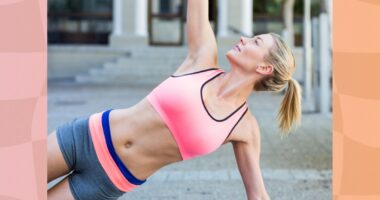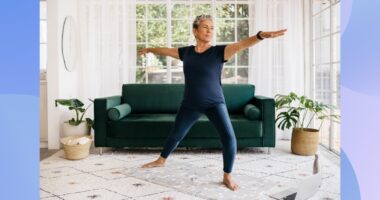Don’t want to get sick this winter? The pandemic health habits to keep long term
With soaring flu cases and other illnesses lurking, experts weigh in on which Covid prevention measures are worth keeping up, and which to ditch
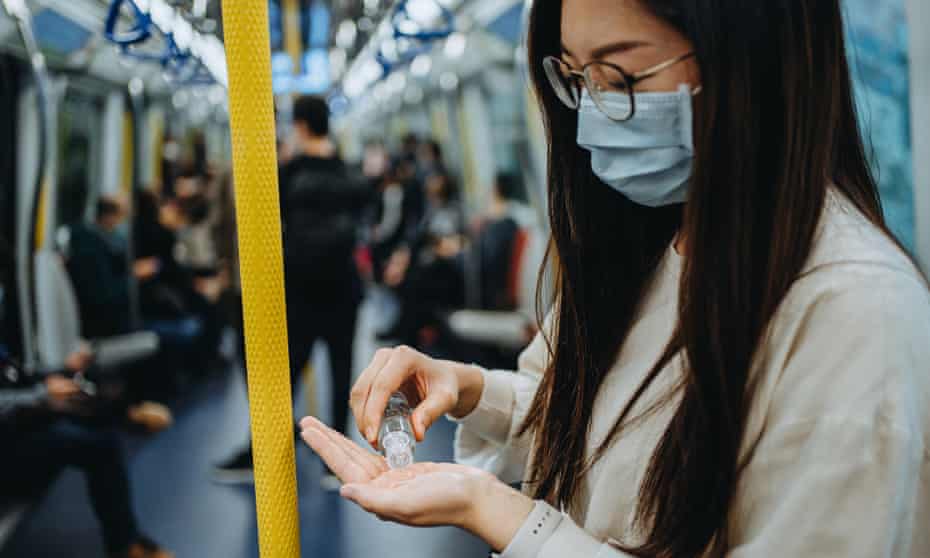
We’re two and a half years into the Covid-19 pandemic and it seems other viruses are making a grab for the spotlight.
There are outbreaks of hand, foot and mouth disease at childcare centres across the Northern Territory and north Queensland, soaring influenza case numbers, and the emergence of monkeypox in Australia (though experts say it’s unlikely to take off).
The good news is that continuing some of the health and hygiene habits adopted because of Covid will also reduce the risk of contracting other lurgies, experts say.
Minding your hands
Studies have shown the number of people soaping their hands after a trip to the toilet was low before the pandemic: around one in four globally, and one in two in areas with good access to hand-washing facilities.
This led to a lot of (grubby) finger-pointing early in the pandemic, with a deluge of public messaging and awkward celebrity videos emphasising the importance of washing your hands thoroughly with soap and running water for 20 seconds, or using hand sanitiser if you can’t get to a tap.
Dr Kerry Hancock, an Adelaide-based GP with a special interest in respiratory medicine, says although it’s now known that Sars-CoV-2 mainly spreads through the air, hand hygiene is the “cornerstone” of infection prevention – and a simple way to cut transmission of other viruses and bacteria.
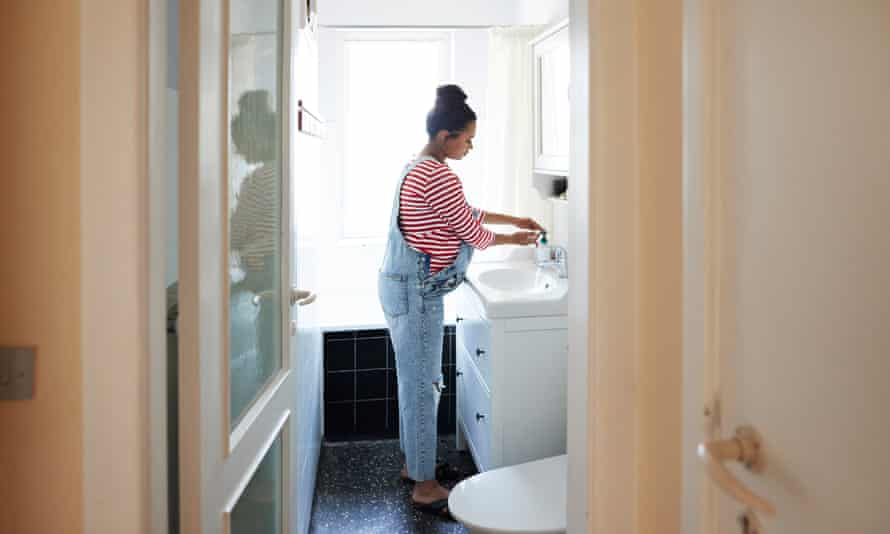
“It’s such an easy thing to do, to keep washing or sanitising our hands before we eat or touch things … but anecdotally I think people aren’t as fanatical about it as they were six months ago, at the peak [of Covid cases] in South Australia.”
Associate Prof Holly Seale, an expert in perceptions and behaviours regarding infectious diseases from the University of New South Wales, notes most people are taught from childhood about hygiene in the context of protecting themselves – but hand hygiene goes both ways.
Making sure your hands are clean before a trip to the shops or a ride in an elevator is “certainly about protecting other people as well”.
Habit to ditch: gloves
However, wearing gloves to protect yourself from germs on surfaces, such as supermarket trolleys, is unnecessary, Seale says.
“People who wear gloves are less likely to wash their hands and may be increasing their risk because they think their hands are clean.”
Regular jabs
Seale recommends everyone over six months old get the influenza vaccine, which in 2022 is protective against four strains.
In 2021, Australia recorded zero flu deaths, with federal health data from January to early November clocking only 598 confirmed cases.
In contrast, three people have died from influenza this year to-date, and more than 47,860 people have caught it. “We’ve had a couple of years where flu hasn’t really been around, and there’s certainly concerns that people have lower levels of protection,” Seale said.
The federal government already foots the bill for a flu vaccine for those at high risk, but the jab has temporarily been made free for the general population by all state governments – so everywhere except the Northern Territory and the ACT – at time of writing.
Seale calls this “a great initiative” and one that might “really shift people into considering flu vaccination as part of their normal practice. Because once you’ve received it once, you’re more likely to go back and get it again.”
It may be worth making the jab free long-term, Seale adds. Along with the flu vaccine, Hancock urges that everyone stay up to date with vaccination against whooping cough (pertussis), a “nasty illness” that erupts in Australia every few years.
READ RELATED: How I Parent While Managing a Chronic Illness
Staying home when sick (and masking when you can’t)
One of the biggest lessons of Covid-19 has been the importance of unwell people staying away from work and social events, says Associate Prof Sheena Sullivan, an infectious disease epidemiologist at the Doherty Institute.
She hopes employers will lead by example, which might mean helping staff work from home if well enough, or addressing cultural barriers to using sick leave – such as fear of “letting the team down”.
But casualised workforces and areas people can’t work from home continue to present a “real risk” to disease control, and must be addressed by government, Sullivan says.
“It became clear early in the pandemic that a lot of people who work with some of the most vulnerable in our communities are part of this large casualised workforce, who don’t have sick leave entitlements, and are disincentivised from taking time off … that includes people who work in aged care and disability care, as well as other essential services such as meatpacking.”
Sullivan hopes that when people must go out while they have respiratory symptoms, there will be a long-term shift towards wearing masks out of courtesy to others.
“I work with people who understand viruses quite well so it’s an unusual environment – but there are people who, if they know someone in their family is unwell or they have symptoms themselves, they start wearing an N95 while they’re at work.”
Seale suggests employers provide free surgical masks or respirators in case staff are caught out by newly developing respiratory symptoms while at work.
Hancock says “the best mask is a N95 respirator, fit tested and checked, and worn with the straps tied securely overhead. However, the best compromise for the public is a surgical mask to prevent transmission to others.”
Clearing the air
“We know that, especially in aerosol-transmitted disease, ventilation is critical,” Hancock says.
The World Health Organization ventilation “bible” has advice on assessing airflow for building managers as well as people caring for a Covid-19 patient at home, but Hancock encourages people to think about social settings too.
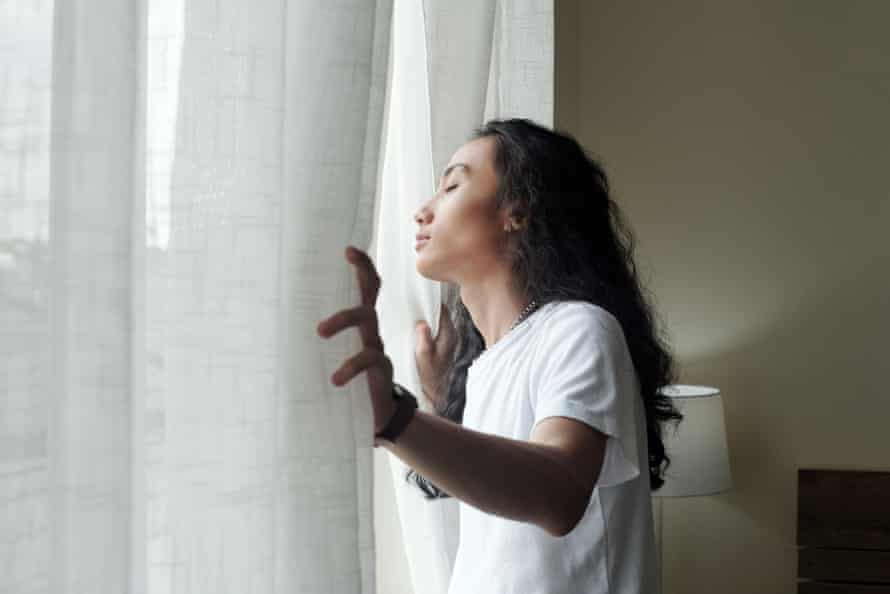
“A lot of cafes and businesses modified their buildings – maybe knocked a wall down to have more open windows … I would really pick and choose where I go, for example, not sitting to eat in a crowded place with poor ventilation.”
Change to ditch: barriers
While good ventilation is vital, there’s concern that plastic barriers, such as those used at many retail checkouts, interfere with ventilation and provide a false sense of security, Hancock says.
“If you’re at the supermarket counter and you’re going to cough, you’re better off wearing a mask to protect the cashier. Otherwise, they’re going to be protected from droplets [by the barrier] but … not from the tiny aerosols, which are going up into the air and being breathed in on the other side.”
Having a plan
The pandemic has also underscored the importance of people with chronic health conditions having a plan to follow if their health worsens, Hancock says.
“My patients with asthma were being much more adherent to their preventer medication. They were really getting the message that if your asthma’s under control and along comes a virus – no matter if it’s Sars-Cov-2 or rhinovirus [the main cause of the common cold], you’re less likely to tip into an exacerbation.
“It’s harder for people with other lung diseases, such as bronchitis or chronic obstructive pulmonary disease (COPD), to control their disease … but all patients with chronic lung disease should have action plans written down, so they know how to recognise if they’re getting worse, if they need to up their meds or start another medication, if there’s a hotline they can call, or when to phone an ambulance.”
Source: Health & wellbeing | The Guardian


